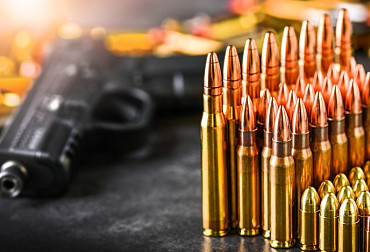Russia knew about the impending IS attack in advance. In addition to the US, close ally Iran should have warned it
New revelations about the terrorist attack at a concert hall in Krasnogorsk, on the outskirts of Moscow, which killed at least 144 people at the end of March - the Russian government should have been warned in advance by its ally Iran, in addition to the United States. According to Reuters' findings, the Kremlin knew of the imminent strike by an Islamic State cell and yet failed to take major action. That a larger attack by Islamist radicals could come after the "election" was first communicated to Moscow by Washington through intelligence channels. Vladimir Putin dismissed the warning as an attempt at Western intimidation and initially blamed Ukraine as well. Kiev has vehemently rejected any involvement in similar attacks on Russian civilians, a claim confirmed by Western allies who say there is no doubt that IS radicals are involved.

It was the biggest terrorist attack in the Russian capital in decades. On 22 March, a group of gunmen infiltrated the Crocus City Hall concert hall with machine guns and explosives. They opened fire on everyone they met inside. They then used incendiary liquid to start a large fire in the main hall. Some 144 people died in the massacre and about the same number ended up in hospitals, many of them in serious condition. Initial reports from Russian authorities about possible suspects who managed to flee the scene spoke of them heading for the Ukrainian border.
Vladimir Putin then spoke about the possibility of Kiev's involvement in his address to the nation. His unsubstantiated claims were flatly rejected by the country he occupied, as well as by his partners in the US. The attack was subsequently claimed by the Islamic State's Afghan offshoot in Khorasan, which has become one of the most dominant parts of IS after the dispersal of its former leadership in Syria and Iraq. It backed up its claim with a published video of the attack and a manifesto blaming Russia for waging war against the Muslim world. Yet Russian officials were initially reluctant to talk about the involvement of Islamic radicals in particular. This, despite numerous warnings even from within their own allied axis.
"A few days before the attack in Russia, Tehran passed on to Moscow information about a possible major terrorist attack in Russia that was obtained during interrogations of those arrested in connection with the deadly bombings in Iran," Reuters quotes an unnamed source familiar with the details of the case. Iran launched a major crackdown on members of IS-K, as the cell is nicknamed, in January, detaining 35 members after the Kerman bombings during a procession near the grave of General Qasem Soleimani. Nearly 100 people were killed and hundreds more injured. IS-K claimed responsibility for the twin bombs.
The warning came after another of a similar nature, which ironically came from the US. Washington, as part of its policy of not withholding this kind of sensitive security information, also warns otherwise hostile states and was the first to pass on information about the impending attack to Moscow through its intelligence channels. Even given that the Russian "election" was taking place at the time, Putin used the well-intentioned warning as a pretext to verbally attack the United States, dismissing it as a provocation and an attempted threat. According to analysts, Russia's initial reaction was more or less expected given U.S. support for Ukraine and the current geopolitical situation, but it is more complicated if a tip-off from one of Russia's biggest allies, Iran, is proven.
"(IS-K members) have been briefed to mount a major operation in Russia. One of the terrorists (arrested in Iran) said some members of the group had already traveled to Russia," a second source familiar with the case, who also did not want to be named for his safety, told Reuters. A third person with access to sensitive information among senior security officials said the Iranian warning came in line with the group's long-standing activities and also stressed the benefit of information obtained during interrogations of terrorists.
The Dossier Center, an investigative group run by exiled opposition figure Mikhail Khodorkovsky, also reportedly has evidence that the message reached top Russian officials several days in advance. "A few days before the terrorist attack, members of the Russian Security Council received a warning that Tajik citizens could be used to carry out terrorist attacks on Russian territory," according to CNN, the latest report from Khodorkovsky's group said, adding that IS-K was supposed to radicalize Tajik citizens and train them to carry out a major attack. They were then to live and work in Russia on temporary visas and await instructions. "Even before the attack on the Crocus Hall, a source close to the intelligence services told the Dossier Center about it," the group's officials say. Reuters sources also speak of Tajik involvement, citing interrogations in Iran. Diplomatic sources said officials in Tehran and Dushanbe had already held talks on the subject.
The Russians claim to have detained the four attackers, shown them beaten on camera and confirmed their Tajik affiliation. Three of the tortured prisoners have confessed to all charges. A Kremlin spokesman would not comment on the matter even after mounting evidence of Russian authorities' knowledge of a possible massacre by terrorists. This follows the policy established years ago by Russia's authoritarian ruler Vladimir Putin, who ordered blanket censorship within his own structures and outwards, rejecting any attempts to investigate the actions of the security forces or to downplay intelligence information and possible wrongdoing by the secret services.








